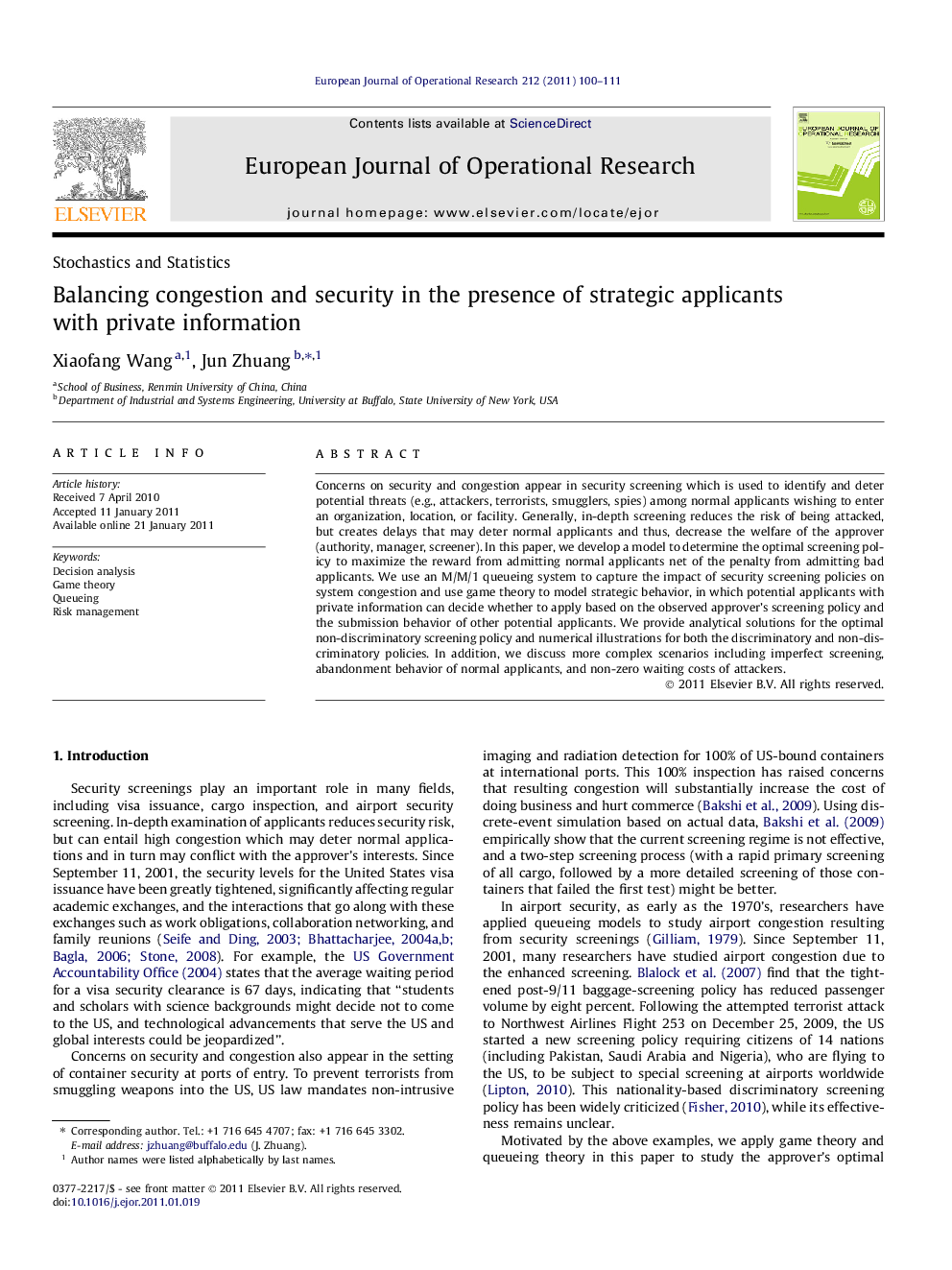| Article ID | Journal | Published Year | Pages | File Type |
|---|---|---|---|---|
| 477065 | European Journal of Operational Research | 2011 | 12 Pages |
Concerns on security and congestion appear in security screening which is used to identify and deter potential threats (e.g., attackers, terrorists, smugglers, spies) among normal applicants wishing to enter an organization, location, or facility. Generally, in-depth screening reduces the risk of being attacked, but creates delays that may deter normal applicants and thus, decrease the welfare of the approver (authority, manager, screener). In this paper, we develop a model to determine the optimal screening policy to maximize the reward from admitting normal applicants net of the penalty from admitting bad applicants. We use an M/M/1 queueing system to capture the impact of security screening policies on system congestion and use game theory to model strategic behavior, in which potential applicants with private information can decide whether to apply based on the observed approver’s screening policy and the submission behavior of other potential applicants. We provide analytical solutions for the optimal non-discriminatory screening policy and numerical illustrations for both the discriminatory and non-discriminatory policies. In addition, we discuss more complex scenarios including imperfect screening, abandonment behavior of normal applicants, and non-zero waiting costs of attackers.
